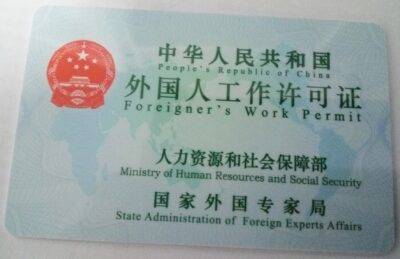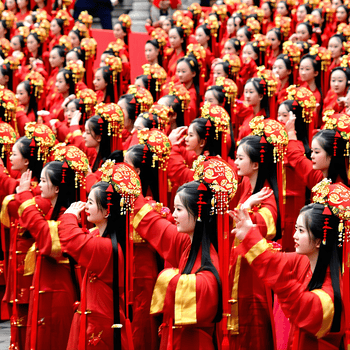
This article provides a comprehensive overview of labor laws in China, emphasizing the rights and responsibilities of expats.
Labor laws in China are critical for ensuring fair treatment and establishing clear guidelines for both local and expatriate workers.
For expats, understanding these laws is essential to navigate their professional lives successfully and avoid potential legal pitfalls.
Historical Context
Evolution of Labor Laws in China
Labor laws in China have undergone significant changes, reflecting the country’s transition from a centrally planned economy to a market-oriented one.
Initially, labor regulations were sparse, with a heavy focus on collective work units and state employment.
The economic reforms of the late 20th century necessitated more comprehensive labor laws to accommodate the growing private sector and foreign investments.
Key Legislative Milestones
- 1986: The General Principles of Civil Law introduced basic labor regulations.
- 1994: The Labor Law of the People’s Republic of China, the first comprehensive labor law, was enacted.
- 2008: The Labor Contract Law was implemented, strengthening employee rights and contract requirements.
Key Labor Laws In China
Labor Law of the People’s Republic of China
This law lays the foundation for labor regulations, covering aspects such as employment contracts, working conditions, and dispute resolution.
It aims to protect workers’ rights while promoting economic development.
Labor Contract Law
Introduced to address issues in the labor market, this law mandates written contracts for all employees, outlines the types of employment contracts, and sets provisions for contract termination and severance.
Employment Promotion Law
This law focuses on promoting employment through various policies and programs, encouraging fair employment practices and the elimination of discrimination.
Social Insurance Law
The Social Insurance Law ensures that all employees, including expats, are covered under the social insurance system, which includes pensions, medical insurance, unemployment insurance, work injury insurance, and maternity insurance.
Employment Contracts
Types of Employment Contracts
Employment contracts in China can be categorized into fixed-term, open-ended, and project-based contracts.
Each type has specific stipulations regarding duration, renewal, and termination.
Key Provisions in Employment Contracts
Key provisions include job description, salary, working hours, probation period, and conditions for termination.
Both parties must mutually agree on these terms, and any amendments should be documented in writing.
Probation Periods
Probation periods are common and must not exceed six months.
During this time, either party can terminate the contract with minimal notice, but reasons for termination must be lawful.
Termination and Severance
Termination must comply with legal grounds such as mutual agreement, expiration of the contract, or misconduct.
Severance pay is mandatory in certain cases, calculated based on the employee’s years of service.
Work Permits and Visas
Types of Work and Residence Permits

Expats need a valid work permit to legally work in China (except if you are a permanent resident).
There are three types:
- Category A for high-end talents
- Category B for working professionals
- Category C for low-skilled workers and fresh graduates.
Expats also need a valid work visa in China. There are two types:
- The Z visa for employment
- The R visa for high-level professionals.
Application Process
The application process involves obtaining a work permit notice, applying for a Z visa, and acquiring a residence permit.
This process requires coordination between the employer and various governmental agencies.
Requirements for Expats
Expats must meet educational and professional experience requirements, undergo health checks, and provide proof of no criminal record.
The employer must also demonstrate the necessity of hiring a foreign worker.
Renewal and Extensions
Work permits and visas need to be renewed before expiration.
The renewal process involves similar steps as the initial application, and it’s crucial to begin the process well in advance to avoid legal issues.
Working Conditions
Standard Working Hours
The standard workweek in China is 40 hours, typically spread over five days.
Any deviation from this must be agreed upon and documented in the employment contract.
Overtime Regulations
Overtime work is permissible but regulated.
Employees should not exceed three hours of overtime per day or 36 hours per month.
Overtime pay is required, with rates higher than regular hourly wages.
Rest Days and Holidays
Employees are entitled to at least one rest day per week and enjoy public holidays, which include major Chinese festivals.
Employers must comply with these rest periods unless otherwise stipulated in the contract.
Health and Safety Regulations
Workplace safety is governed by the Work Safety Law, which mandates employers to provide a safe working environment, conduct regular safety training, and ensure compliance with safety standards.
Compensation and Benefits
Minimum Wage
China has a regional minimum wage system, where each province sets its minimum wage standards.
Employers must comply with the local regulations to ensure fair compensation.
Salary Payment
Salaries must be paid in full and on time, usually monthly.
Any deductions must be lawful and agreed upon in the employment contract.
Social Insurance Contributions
Both employers and employees must contribute to the social insurance system.
Contributions cover various insurances, and the rates are determined by local governments.
Other Benefits
Additional benefits may include housing allowances, transportation subsidies, and meal allowances.
These benefits are often negotiated as part of the employment package.
Rights and Protections
Anti-Discrimination Laws
China’s labor laws prohibit discrimination based on ethnicity, race, gender, and religious beliefs.
Employers must promote equality and fair treatment in the workplace.
Rights to Collective Bargaining
Employees have the right to form or join labor unions and engage in collective bargaining to negotiate better working conditions and benefits.
Protection from Unlawful Termination
Employees are protected from unlawful termination, which includes termination without cause or due process.
Legal recourse is available for those who face wrongful dismissal.
Maternity and Paternity Leave
Female employees are entitled to maternity leave, which varies by region but generally lasts 98 days.
Paternity leave is also provided, though its duration is shorter and varies across regions.
Dispute Resolution
Mediation and Arbitration
Labor disputes can be resolved through mediation or arbitration.
Mediation is a voluntary process, while arbitration involves a formal decision by an arbitrator, which is binding.
Labor Dispute Cases
Labor dispute cases are common and can involve issues such as unpaid wages, wrongful termination, and contract breaches.
Understanding the legal process is crucial for expats facing such disputes.
Role of Labor Unions
Labor unions play a significant role in protecting workers’ rights and can assist in dispute resolution.
They also negotiate collective contracts on behalf of employees.
Legal Recourse
Expats have the right to seek legal recourse through the courts if other resolution methods fail.
It is advisable to consult with legal experts to navigate the complexities of Chinese labor laws.
Cultural Insights
Work Culture in China
Understanding the work culture in China is essential for expats.
The culture emphasizes hierarchy, respect for authority, and collective harmony.
Expectations for Expats
Expats are expected to adapt to local customs, which include punctuality, dressing appropriately, and understanding the concept of “face” or reputation.
Navigating Cultural Differences
Navigating cultural differences requires sensitivity and openness.
Building strong relationships with local colleagues can facilitate a smoother integration into the workplace.
Challenges and Solutions
Common Issues Faced by Expats
Common issues include language barriers, cultural misunderstandings, and legal complexities.
These challenges can impact job performance and personal well-being.
Legal and Practical Solutions
To address these challenges, expats should seek legal advice, engage in cultural training, and utilize resources such as expat communities and professional networks.
Resources for Assistance
Numerous resources are available, including embassies, legal firms specializing in expat issues, and online forums where expats share their experiences and advice.
Case Studies
Success Stories of Expats
Highlighting success stories of expats can provide valuable insights and inspiration.
These stories often emphasize adaptability, perseverance, and understanding of local laws.
Lessons Learned from Legal Disputes
Analyzing legal disputes involving expats can offer lessons on what to avoid and how to handle potential issues effectively.
These cases underscore the importance of legal awareness and preparedness.
Expert Insights
Advice from Legal Experts
Legal experts advise expats to thoroughly understand their employment contracts, stay informed about labor laws, and seek professional assistance when needed.
Perspectives from HR Professionals
HR professionals emphasize the importance of clear communication, understanding local employment practices, and building good relationships with employers and colleagues.
Conclusion
Understanding labor laws in China is crucial for expats to ensure their rights are protected and responsibilities are met.



